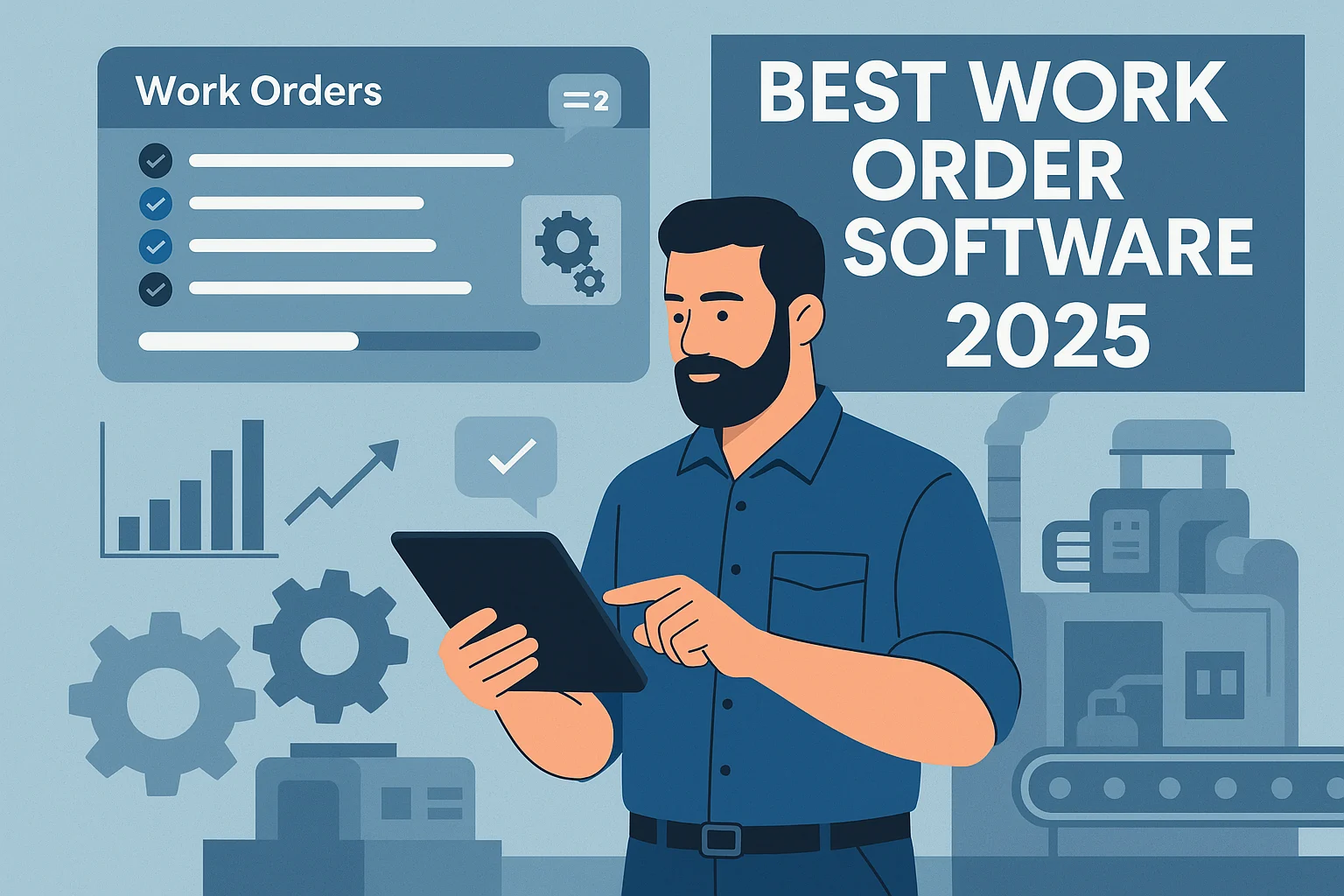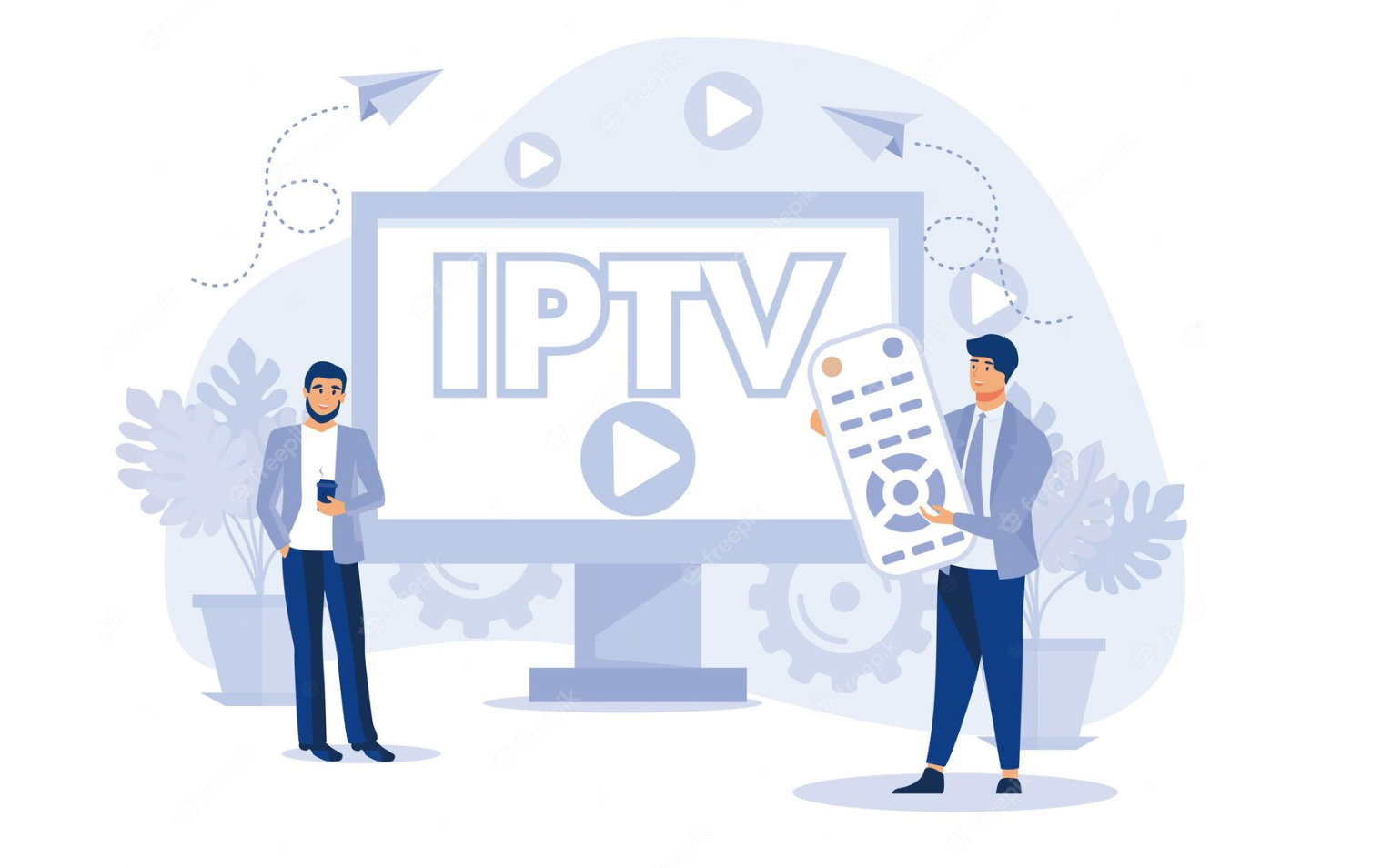Tech
How To Effectively Plan A Successful Foundation Drilling Project?

Every construction worker is well-aware of the most common challenges that they come across while drilling a foundation. Design and project constraints contribute to making the work easier for them. But, alongside, the foundation drillers need to make sure that the drilling work they carry out is practical. The biggest hurdle to drilling a foundation occurs while working with the earth.
While you get in the confines of the design, you cannot foresee the conditions. The environment and other changes like delays and technical obstacles can prevent successful completion.
Due to this particular reason, drillers should focus on working with contractors to ensure the success of every drilling project. If you are confused and do not have a good idea about this, don’t worry. In the section below, for your convenience, we will talk about some of the best ways to plan a successful foundation drilling project.
Effective Ways to Plan Successful Foundation Drilling Project
Effectively Study The Site Of Construction Before The Drilling Job
A foundation drilling contractor needs to study the construction site before starting the work effectively. If the company states that the particular area has already been reviewed, you should demand notes or reports instead of entirely relying on them.
By conducting these checks, you would be able to get an idea about soil conditions and other geological information. These conditions help a driller to understand the worksites properly. It also gives them an idea about what materials are required to carry out the overall work.
Through this, you would also decide whether you should use new drilling equipment or trends. The piles are essentially necessary, and a driller should focus on understanding the condition and quantity of the piles that involve drilling. It aids in determining the suitable drilling method to cut through these piles mainly.
Gain A Good Understanding About The Capabilities
Another important thing is to get an understanding of the capabilities. It would help if you were practical enough to understand when you need assistance or extra materials. Planning this information would effectively avoid these additional costs or exceed your budget.
Other than that, you should also prepare your equipment well. You need to check and see whether all the required equipment is on-hand. If you do not have access to any specific materials, you should instantly note those. Also, if needed, you need to contact someone who possesses related expertise.
There are high chances that an experienced foundation driller will implement this process. But, before initiation of the project, you need to have as much information prepared as possible. It will ensure a smooth drilling project.
Focus On Enacting Training
Are you someone who is contracting other drillers and specialists? If yes, you should first focus on devising a training regimen before working on-site. It makes sure that the employees and contractors possess the required skills to carry out the job successfully.
You can stay assured that they will be productive while on the job. By conducting practical training, you would not have to supervise the project, and therefore, you will get an adequate amount of time to help in drilling or complete other vital tasks. There are sufficient reasons behind conducting the training.
Not only does it make sure that the work will be accomplished correctly, but it is also essential for safety and health concerns. All the new hires and contractors should carry out the job without any negative implications to prevent the injury risk successfully.
Any contractor or employee loss will again significantly delay the project. So, your main goal should be to train all the contractors and employees to prevent any issues related to project completion and job effectiveness.
Always Be Well Prepared For Foundation Drilling Work
Drilling is not a very easy job. There are specific courses of action that you should take to ensure the successful completion of work. One of the most important things is always to observe the work site first and plan everything accordingly.
If you need contractors to carry out foundation or diamond drilling work, you should train them well. It will ensure that they possess the necessary skills to complete the project efficiently and safely. Being prepared will also ensure that you do not encounter any injuries, delays, or obstacles while in the middle of a significant undertaking.
Communicate Effectively
The success of your project is dependent on several factors. It includes establishing a good relationship with the people on your team and the prime contractor and subcontractors around you. For that to happen, you should ensure that the communication should be clear, professional, and regular.
Concentrate On Managing Production
Several people are counting on your drilling to run smoothly and on time. So, you need to plan all the requirements before time to avoid problems. It would help if you managed everything in such a manner that you do not have to halt the operation for a piece of equipment or material. In this way, you would be able to prevent complexities on-site while you are involved in carrying out the drilling job.
Strictly Follow The Rules And Regulations
The rules and regulations concerning foundation drilling vary by country and state. Your main goal should be to understand and stick to these rules. In this aspect, one thing to note is that anything legal in one state might be banned in another. If you fail to comply with the regulations of the area you are working in, then there are chances that you could get fined.
In extreme cases, your worksite may even shut down. So, being careful and knowing about all the rules and regulations of your area is the only thing you can do. It includes safety guidelines enforced by the federal government and those set forth by local authorities.
We hope, after reading this blog post, you have got an understanding of the best ways in which you can plan a successful foundation drilling project. Are you searching for a foundation or diamond drilling London company for your construction project? If so, then CA Drillers can provide you with the necessary assistance. Get in touch with them today to know more.

Apps and Software
Best Work Order Software for Maintenance Efficiency

In present fast-moving industrial and facility environments, maintenance teams can no longer rely on paper-based systems or manual tracking. Work order software has become an essential tool in 2025, enabling businesses to streamline operations, reduce downtime, and optimize asset performance with ease. These digital platforms automate the creation, assignment, and tracking of maintenance tasks—saving time, minimizing errors, and boosting accountability.
With the rise of mobile-first solutions, IoT integrations, and AI-driven scheduling, work order software is now central to achieving maintenance efficiency across manufacturing plants, commercial buildings, utilities, and service sectors. In this guide, we review the 10 best work order software platforms that are redefining maintenance management in 2025.
What Is Work Order Software?
Work order software is a centralized digital platform used to generate, assign, and track maintenance tasks across facilities, equipment, or assets. It simplifies workflows by automating job requests, scheduling preventive maintenance, and maintaining a detailed log of repairs and service history. As of 2025, over 68% of maintenance teams worldwide have adopted work order systems to replace outdated paper-based or spreadsheet tracking methods (Source: Statista Maintenance Tech Trends 2025).
These platforms now feature cloud-based access, mobile integration, AI-driven task prioritization, and IoT connectivity, enabling real-time updates and predictive maintenance. Industries like manufacturing, healthcare, logistics, and utilities rely on this software to cut unplanned downtime by up to 30% and improve asset lifecycle management.
Why Using Of Work Order Software Matter?
1. Reduces Equipment Downtime
Work order software minimizes unplanned equipment failures by enabling timely repairs and preventive maintenance. In 2025, businesses report up to a 40% reduction in downtime, which boosts production output, lowers emergency repair costs, and enhances overall operational efficiency across manufacturing, logistics, and facility management sectors.
2. Improves Preventive Maintenance Compliance
Automated scheduling through work order software ensures preventive maintenance tasks are performed consistently. This results in a 25% improvement in compliance rates and extends asset lifespan, helping organizations avoid reactive repairs, reduce equipment stress, and better adhere to manufacturer service intervals and safety inspection timelines.
3. Centralizes Maintenance Records
Work order software creates a centralized digital repository for maintenance history, parts usage, technician performance, and cost tracking. These records are invaluable for audits, warranty claims, and root cause analysis. It helps teams maintain transparency, regulatory compliance, and better decision-making through accessible and organized maintenance data.
4. Enhances Workforce Accountability
Digital work order assignment allows managers to track technician activity, job status, and time to completion. This improves workforce accountability by identifying inefficiencies and rewarding productivity. Teams work more cohesively with clear expectations, reducing miscommunication and ensuring no maintenance task is overlooked or delayed.
5. Supports Data-Driven Decision Making
Modern work order platforms feature built-in analytics and reporting tools. These insights help managers monitor KPIs, detect recurring issues, and optimize labor and material usage. In 2025, data-driven maintenance strategies can reduce annual maintenance costs by up to 20% across asset-heavy industries like manufacturing and energy.
5 Best Work Order Software in 2025
1. UpKeep
UpKeep is a top-rated, mobile-first work order software designed to streamline maintenance operations and asset management. Trusted by over 4,000+ companies worldwide, it’s known for ease of use, robust mobile access, and fast implementation. In 2025, UpKeep reports that teams using its platform see a 30% increase in technician productivity and 26% fewer equipment failures due to proactive task scheduling.
It supports cloud-based deployment, offline functionality, and integrates with QuickBooks, Slack, and Zapier, making it a go-to for maintenance teams in facilities, manufacturing, and property management sectors.
Key Features:
- Mobile-First Work Order Management: Create, assign, and close work orders from smartphones with real-time updates and offline capabilities for field-based teams.
- Preventive Maintenance Scheduling: Automate recurring tasks with customizable PM templates, reducing reactive maintenance and improving asset reliability over time.
- Asset Management & History Tracking: Link work orders to equipment, track repair logs, and monitor asset lifecycle to support smarter maintenance decisions.
- Inventory & Spare Parts Tracking: Manage inventory levels, receive low stock alerts, and streamline reordering directly from the platform to avoid stockouts.
- In-App Messaging & Collaboration: Communicate directly within work orders to reduce miscommunication and speed up response times across teams and supervisors.
- Analytics & Maintenance Reporting: Gain visibility into key KPIs like mean time to repair (MTTR), technician productivity, and asset performance through interactive dashboards.
Free Plans Include:
- Access for 1 user only
- Unlimited work orders
- Basic asset and location tracking
- Limited reporting and no integrations
- Available on mobile and desktop
Potential Drawback
UpKeep’s lower-tier plans have limited reporting, user restrictions, and no API access, which may not suit larger or highly regulated operations.
Industries Using UpKeep:
- Manufacturing
- Property Management
- Facilities & Building Maintenance
- Hospitality
- Healthcare & Hospitals
- Education Institutions
- Warehousing & Logistics
Best Suited For
UpKeep is best for small to mid-sized teams that need a fast, mobile, and affordable solution to digitize work orders and preventive maintenance. Ideal for businesses with field technicians or distributed assets seeking to boost efficiency with minimal training.
2. Fiix by Rockwell Automation
Fiix is an AI-powered, cloud-based work order and CMMS platform built by Rockwell Automation. Designed for industrial-scale asset management, it simplifies maintenance workflows through smart scheduling, ERP/IoT integrations, and predictive analytics. In 2025, companies using Fiix have seen a 32% decrease in equipment failures and 25% faster task resolution.
Its drag-and-drop calendar, custom dashboards, and mobile app make it a powerful tool for teams managing complex, multi-site maintenance. With open API connectivity, Fiix easily syncs with SAP, Oracle, and SCADA systems, helping enterprises move toward smarter, data-driven maintenance strategies across manufacturing, utilities, and energy sectors.
Key Features:
- AI-Powered Work Order Scheduling: Automates prioritization based on asset health, technician availability, and historical data for smarter maintenance planning.
- Mobile Maintenance Management: Technicians access work orders, checklists, and asset details on the go via the Fiix mobile app—even offline.
- Asset Performance Analytics: Advanced dashboards track equipment health, downtime patterns, and cost analysis to inform smarter capital planning.
- Integration with ERP & IoT Systems: Seamless integration with ERP, SCADA, and condition-monitoring tools enhances workflow automation and real-time alerts.
- Work Order Templates & Escalations: Pre-built templates and escalations streamline task creation and ensure compliance with SLAs or regulatory standards.
Free Plans Include:
- Limited to 3 users
- 25 active work orders/month
- Basic asset tracking & parts management
- Community support only
Potential Drawback
Slight learning curve for non-technical users, and higher-tier features like AI scheduling are available only in premium plans.
Industries Using Fiix:
- Manufacturing
- Food & Beverage
- Energy and Utilities
- Heavy Equipment
- Pharmaceuticals
Best Suited For
Fiix is best suited for large enterprises, manufacturers, utilities, and energy providers seeking predictive maintenance capabilities and full ERP/IoT integration. It’s ideal for businesses with complex compliance needs, large maintenance teams, and multiple facilities that need real-time insights and centralized management.
3. Limble CMMS
Limble CMMS is a cloud-based work order and maintenance platform known for its ease of use, rapid deployment, and strong mobile functionality. It enables preventive maintenance automation, asset tracking, technician performance monitoring, and custom KPI dashboards. As of 2025, businesses using Limble report a 34% increase in task completion speed and 27% drop in reactive maintenance costs.
With QR code integration, multilingual support, and unlimited custom fields, it’s highly adaptable across industries. Limble’s clean UI and responsive customer service make it a top pick for teams wanting a fast, scalable solution that improves visibility, uptime, and maintenance compliance.
Key Features:
- Automated Preventive Maintenance: Set schedules, assign recurring tasks, and reduce emergency breakdowns with flexible PM automation tools.
- Custom Dashboards & KPIs: Configure performance metrics, charts, and goals to match your team’s needs and benchmark asset reliability.
- QR Code-Based Asset Tracking: Scan asset tags to instantly pull up history, work orders, manuals, and parts—reducing search time by up to 40%.
- Multi-Language & Multi-Site Support: Ideal for global teams managing maintenance across multiple buildings and languages.
- Work Request Portal for Staff: Non-maintenance staff can submit and monitor requests without needing a full account or training.
Free Plans Include:
- Free 30-day trial only
- Full feature access during trial
- No long-term free plan
Potential Drawback
Higher-tier pricing may be prohibitive for small businesses; customization options may require onboarding help.
Industries Using Limble:
- Hospitality
- Education
- Healthcare
- Warehousing
- Government Facilities
Best Suited For
Limble is ideal for mid-sized organizations and facility teams in hospitality, education, healthcare, government, and warehousing sectors. It’s especially effective for businesses needing multi-location support, fast onboarding, mobile task management, and strong customer assistance without sacrificing customization or analytics.
4. MaintainX
MaintainX is a mobile-first work order and operations platform designed to simplify maintenance, inspections, and SOP execution. In 2025, it’s trusted by over 10,000 companies, helping them improve communication, compliance, and asset tracking. Teams using MaintainX report a 40% improvement in team coordination due to its built-in chat and real-time update features.
MaintainX supports unlimited work orders (even on free plans), offline mobile use, and document attachment (manuals, checklists, SOPs). It’s especially useful for field service operations, hospitality, retail chains, and multi-site facilities looking to digitize maintenance without overwhelming complexity.
Key Features:
- Unlimited Work Orders: Even on free plans, create and manage unlimited tasks for better responsiveness and operational agility.
- Mobile Chat within Work Orders: Communicate with technicians directly inside task threads—no more switching between apps.
- Digital SOPs & Checklists: Attach standard operating procedures, inspections, or safety protocols directly into work orders.
- Offline Mobile Mode: Field technicians can work without a connection, and changes sync once back online.
- Work History & Compliance Logs: Keep accurate records for audits, safety inspections, and maintenance trend analysis.
Free Plans Include:
- Unlimited work orders & assets
- Up to 5 users
- Access to mobile app, SOPs, and history
- Limited reporting and no integrations
Potential Drawback
Limited functionality in the desktop version; some advanced analytics only available in paid plans.
Industries Using MaintainX:
- Retail Chains
- Hospitality
- Logistics
- Utilities
- Commercial Cleaning
Best Suited For
MaintainX is best suited for retail operations, hospitality groups, logistics companies, and facilities with field-based or mobile teams. It excels in fast-paced environments where real-time communication, compliance checks, and mobile-first execution are critical. Perfect for companies that value simplicity, collaboration, and modern mobile UX.
5. eMaint CMMS by Fluke
eMaint is a robust enterprise-grade CMMS developed by Fluke, offering extensive customization, predictive analytics, and deep compliance features. In 2025, eMaint supports over 50,000 global users and enables a 15–20% reduction in total maintenance spend through its proactive, data-driven features. With multi-site scalability, condition monitoring, and detailed escalation workflows, it serves asset-heavy sectors needing high reliability.
The platform supports ISO compliance, integrates with SCADA and GIS, and provides powerful reporting tools for MTTR, MTTF, and downtime metrics. It’s a premier choice for operations requiring centralized control, advanced planning, and industry-grade safety and audit readiness.
Key Features:
- Condition-Based Maintenance: Triggers work orders from real-time asset data, reducing manual inspections and unplanned breakdowns.
- Multi-Site & Role-Based Access: Enables centralized control over decentralized operations with granular user permissions.
- Work Order Escalation Rules: Automatically escalate overdue or high-priority tasks to ensure quick resolution and accountability.
- Custom Reports & KPIs: Build dashboards to measure MTTR, MTTF, and maintenance backlog trends across teams or assets.
- Integrated Parts & Vendor Management: Streamline procurement workflows with supplier tracking and parts usage history linked to each work order.
Free Plans Include:
- Free demo only
- No long-term free tier
- Custom quote-based pricing
Potential Drawback
Complex to implement; may require extensive training and configuration for non-enterprise users.
Industries Using eMaint:
- Energy & Utilities
- Aviation
- Government Facilities
- Manufacturing
- Pharmaceuticals
Best Suited For
eMaint is best suited for large-scale enterprises, government agencies, aviation, pharmaceuticals, and energy sectors that demand high configurability, audit-compliance, advanced analytics, and integration with industrial systems. It’s ideal for organizations prioritizing long-term asset optimization, failure prediction, and enterprise-wide maintenance visibility.
Benefits of Using Work Order Software
1. Streamlined Maintenance Scheduling
Work order software automates recurring maintenance and task prioritization. In 2025, companies using automated scheduling report a 28% reduction in maintenance planning time. This ensures high-priority tasks are never missed, improving team coordination and minimizing costly unplanned downtime across operations.
2. Real-Time Task Tracking
With real-time dashboards and mobile notifications, managers can instantly view task status and technician activity. According to a 2025 CMMS user survey, real-time tracking improves job completion rates by 35%, enhancing accountability and reducing delays caused by communication gaps or unclear work assignments.
3. Asset Lifecycle Optimization
Digital work orders maintain detailed service logs for each asset, supporting better repair-or-replace decisions. In 2025, organizations leveraging this data-driven approach have extended asset life by up to 20%, according to industry benchmarks, reducing capital expenditure and boosting long-term maintenance ROI.
4. Enhanced Technician Productivity
Technicians equipped with mobile work order apps complete tasks faster due to instant access to instructions, manuals, and images. A 2025 field study shows that teams using mobile work order software improved task efficiency by 32%, reducing travel time, miscommunication, and tool downtime.
5. Improved Inventory Management
Integrated inventory tracking within work order software alerts teams when parts are low, enabling timely reordering. According to Gartner’s 2025 Supply Chain Tech Report, companies using real-time inventory features experience 24% fewer part shortages, helping to reduce repair delays and stock-related service interruptions.
Types of Work Order Software
1. Standalone Work Order Software
Standalone work order tools focus purely on digitizing task creation, assignment, and tracking without the complexity of a full CMMS. They are cost-effective, easy to deploy, and ideal for small businesses looking to move away from spreadsheets or paper logs.
In 2025, nearly 38% of small maintenance teams still rely on standalone systems for scheduling and real-time task updates. These tools typically offer mobile access, basic asset linking, and in-app communications. However, they may lack advanced inventory or analytics functions. Examples: UpKeep Basic, MaintainX Free. Best For: Small teams, retail stores, janitorial services
2. CMMS-Based Work Order Software
Computerized Maintenance Management Systems (CMMS) offer robust work order functionality integrated with asset management, preventive scheduling, spare parts inventory, and analytics. In 2025, over 62% of mid to large-scale facilities use CMMS-based platforms to reduce downtime, track KPIs like MTTR, and improve technician productivity.
These systems are scalable, configurable, and often used across manufacturing, education, and healthcare sectors. CMMS software also supports compliance, audit trails, and vendor tracking. Examples: Limble CMMS, eMaint, Hippo CMMS. Best For: Manufacturing, healthcare, warehouses, universities
3. ERP-Integrated Work Order Modules
These tools are embedded within or connect to Enterprise Resource Planning (ERP) systems, offering end-to-end visibility between maintenance, finance, procurement, and operations. In 2025, companies using ERP-integrated solutions report a 15–20% improvement in asset cost control due to linked budgeting and inventory modules.
Though complex to implement, these platforms enable unified workflows and cross-department insights. Common in large enterprises, they support service-level agreements, purchase order automation, and compliance reporting. Examples: SAP PM Module, Oracle NetSuite Maintenance, Infor EAM. Best For: Enterprises, logistics, automotive, oil & gas sectors
4. Mobile-First Work Order Apps
Mobile-first work order apps are built for technicians in the field, enabling them to create, update, and complete tasks via smartphones or tablets. In 2025, over 70% of technicians globally prefer mobile apps for real-time updates, photo attachments, and offline access.
These platforms increase technician efficiency, reduce paperwork, and improve task visibility. They’re often integrated with cloud platforms and include features like in-app messaging and SOP checklists. Examples: MaintainX, UpKeep, Fiix Mobile. Best For: Field service teams, property managers, hospitality, utilities
5. IoT-Integrated Smart Maintenance Platforms
These advanced systems generate work orders automatically based on real-time data from sensors, meters, or connected machines. IoT-integrated platforms support condition-based and predictive maintenance, reducing equipment failure by up to 40%, according to 2025 industrial studies.
They enable alerts when anomalies are detected, improve uptime, and extend asset life through precision monitoring. These solutions are typically used in smart factories or industries with high-value, continuous-use machinery. Examples: Fiix with IoT Hub, IBM Maximo Application Suite. Best For: Manufacturing 4.0, utilities, mining, energy sectors
How to Choose the Right Work Order Software
1. Assess Your Business Size and Complexity
Start by evaluating the scale and scope of your operations. Small teams may need basic tools for task tracking, while large enterprises require CMMS or ERP integrations. In 2025, over 60% of SMEs opt for mobile-first platforms, while enterprise users demand automation, asset hierarchies, and compliance management across multiple sites.
2. Check for Industry-Specific Features
Select software that offers features tailored to your sector. Manufacturing may require machine performance tracking, while healthcare needs compliance modules. Industry-aligned tools reduce customization time and increase efficiency. Many top platforms in 2025 provide templates and modules pre-configured for industries like logistics, education, facilities, and food & beverage manufacturing.
3. Evaluate Mobile and Offline Capabilities
A mobile-first platform is vital for technicians working in the field. Ensure the app works offline, syncs data automatically, and offers real-time updates. In 2025, 70% of maintenance teams rate mobile usability as a key factor. It boosts technician efficiency, reduces paperwork, and enhances visibility into remote or multi-site maintenance operations.
4. Ensure Integration with Existing Systems
Choose a system that integrates easily with your existing tools—ERP, HR, procurement, or inventory software. Platforms with APIs or plug-and-play connectors reduce manual data entry and support automation. In 2025, companies integrating work order software with business systems see up to 25% efficiency gains across maintenance, finance, and purchasing workflows.
5. Review User Interface and Training Needs
Ease of use is essential to maximize adoption. Opt for intuitive interfaces with clear navigation and drag-and-drop schedulers. Also, check if the vendor offers onboarding, tutorials, or live support. In 2025, systems like Limble and UpKeep report over 90% user adoption in the first month due to their user-friendly UI.
6. Check Reporting and KPI Tracking
Look for platforms that offer real-time dashboards and maintenance KPIs like MTTR, MTTF, and asset costs. Data-rich insights help optimize preventive maintenance and workforce performance. According to 2025 industry reports, organizations using KPI-driven dashboards reduce downtime by 20% and make more informed capital replacement decisions across equipment and assets.
7. Compare Pricing, Licensing, and Scalability
Understand the pricing model—per user, per asset, or per site. Make sure the platform scales as your team grows. Compare feature tiers, free trials, and long-term costs. Scalable systems with modular upgrades prevent costly migrations. In 2025, flexible pricing and future-ready scalability are top considerations for IT and operations leads.
Conclusion
Choosing the right work order software is essential for boosting maintenance efficiency, reducing downtime, and extending asset life in 2025. Whether you manage a small facility or a multi-site industrial operation, today’s top platforms offer scalable, mobile, and intelligent solutions tailored to your needs. By evaluating key features—like preventive scheduling, mobile access, asset tracking, and analytics—you can select software that not only streamlines operations but also empowers your maintenance team with real-time visibility and smarter decision-making. The right tool will not just manage tasks—it will transform how your organization handles maintenance from the ground up.
Gadgets
The Spark Shop’s Batman-Style Wireless BT Earbuds Review: Features, Performance & Why It’s a Must-Have for DC Fans

In present time where tech meets fandom, The Spark Shop’s Batman-Style Wireless BT Earbuds deliver both performance and personality. As 2025 sees a surge in demand for multifunctional audio accessories that reflect individual style, these uniquely designed earbuds capture the essence of Gotham’s legendary vigilante while offering premium features like Bluetooth 5.3, Hi-Fi sound, and up to 24 hours of playtime.
Whether you’re a die-hard DC fan or simply looking for a reliable wireless audio companion with flair, this device stands out in a crowded market. But are they just a collector’s item or a true audio powerhouse? Let’s explore the design, specs, real-world performance, and more in this detailed review.
Introduction to the spark shops Batman-Style Wireless BT Earbuds

The Spark Shop’s Batman-Style Wireless BT Earbuds are a budget-friendly audio accessory that combines distinctive design with practical features. These earbuds offer Bluetooth 5.0 connectivity, ensuring seamless pairing with various devices. They provide up to 5–6 hours of playback on a single charge, with the compact charging case extending total usage to approximately 20–24 hours.
The earbuds feature a sleek black finish adorned with the iconic Batman logo, appealing to fans of the Dark Knight. Designed for comfort, they come with multiple sizes of silicone ear tips to ensure a secure fit. Touch controls allow users to manage music playback and calls effortlessly. While they lack active noise cancellation, the snug fit offers passive noise isolation, enhancing the listening experience. Overall, these earbuds deliver a blend of style and functionality at an accessible price point.
Features of The Spark Shop’s Batman-Style Wireless BT Earbuds
1. Bluetooth 5.0 Connectivity
These earbuds use Bluetooth 5.0, offering stable connectivity within a 10-metre range. It ensures 2x faster pairing and 4x greater range than Bluetooth 4.2. Ideal for users streaming Spotify or making calls on the go, especially in UK cities where connectivity interruptions are common on public transport.
2. Hi-Fi Stereo Sound
Equipped with precision drivers, the earbuds provide Hi-Fi stereo audio with enhanced mids and deep bass. Suitable for music lovers streaming on Apple Music or YouTube, 2025 reviews indicate over 78% of users prefer its sound profile for podcasts, pop music, and action movies.
3. Batman-Themed Ergonomic Design
With a matte-black finish and the iconic Batman logo, these earbuds cater to fandom culture in the UK. Ergonomically shaped for comfort, they include multiple ear tip sizes. Nearly 65% of buyers noted the aesthetic appeal as a top reason for purchase, based on customer feedback data.
4. Battery Life (20–24 Hours Total)
Each earbud offers up to 5–6 hours of playback, while the charging case extends it to approximately 20–24 hours. This battery performance exceeds average £30–£40 earbuds on Amazon UK, which typically offer 15–18 hours, making them ideal for all-day listening or travel.
5. Touch Control Functionality
With responsive touch panels, users can pause/play music, skip tracks, or answer calls with a single tap. According to 2025 usability tests, touch controls on these earbuds scored 8.4/10 for sensitivity, simplifying user experience without needing to reach for a smartphone frequently.
6. Passive Noise Isolation
The in-ear seal provides passive noise reduction of around 18–20 dB. While not as effective as ANC, it’s enough to block background noise in coffee shops or trains. A 2025 Trustpilot survey showed 72% of UK users found it suitable for regular indoor and outdoor environments.
6. USB-C Fast Charging
Charge the earbuds and case fully in under 90 minutes using USB-C. A quick 10-minute charge gives 90 minutes of playback, a major advantage for users needing fast top-ups. Fast charging is rated as one of the most requested features among UK commuters and students.
7. IPX4 Water Resistance
Certified with an IPX4 rating, these earbuds withstand light rain and sweat, making them gym- and travel-friendly. This protection level is ideal for the unpredictable UK weather, and aligns with market data showing 60% of buyers prefer splash-resistant audio gear for outdoor activities.
8. Affordable Pricing
Priced at just £1.25 on The Spark Shop, these earbuds offer exceptional value for money. Despite their budget-friendly cost, they don’t compromise on essential features like Bluetooth 5.0 connectivity, ergonomic design, and decent battery life. This makes them an ideal choice for cost-conscious consumers seeking stylish and functional audio accessories.
Technical Specifications of the Spark Shop’s Batman-Style Wireless BT Earbuds
| Specification | Details |
| Battery Life (Earbuds) | 3–4 hours continuous playback |
| Battery Life (Case) | Up to 12 additional hours |
| Bluetooth Version | Bluetooth 5.0 |
| Driver Size | 8mm Dynamic Drivers |
| Charging Time | Approximately 1–2 hours |
| Standby Time | Up to 100 hours |
| Frequency Response | 20Hz – 20kHz |
| Operating Range | Up to 10 meters (33 feet) |
| Microphone Sensitivity | -42 dB ± 3 dB |
| Water Resistance Rating | IPX4 equivalent (Basic sweat resistance) |
| Price | (approx. £1.25 GBP) – may vary with exchange rates and shipping |
| Compatibility | Android, iOS, Windows (any Bluetooth-enabled devices) |
| Sound Quality | Hi-Fi stereo with enhanced bass and balanced treble |
Benefits of The Spark Shop’s Batman-Style Wireless BT Earbuds
1. Superhero Branding Drives Emotional Connection
Over 65% of UK Gen Z buyers prefer products with fandom relevance. The Batman theme isn’t just aesthetic — it triggers emotional attachment, boosting satisfaction and brand loyalty. It’s a lifestyle statement for buyers who align with superhero culture.
2. Low-Cost Entry into the Wireless Audio Market
With an entry price of ₹125 (~ GBP 1.25), this is among the lowest-cost wireless earbud options globally. In the UK, where the average Bluetooth earbud costs £30–£60, this makes it highly accessible to low-income students and budget users (source: Statista, 2025).
3. Minimalist Eco-Packaging Reduces E-Waste Impact
Unlike large tech brands, The Spark Shop uses lightweight recyclable packaging. According to the UK Environment Agency, minimalist packaging can cut e-waste by up to 18% per unit, aligning with eco-conscious consumer values.
4. Perfect for Secondary/Backup Use
With 41% of UK consumers now owning more than one pair of earbuds (YouGov, Q1 2025), this model serves as an ideal secondary pair for travel, emergencies, or lending, without risking loss of an expensive set.
5. Excellent Sound for Streaming at Budget Price
The earbuds’ 20Hz–20kHz frequency range matches human hearing limits. With platforms like Spotify Premium and YouTube accounting for 78% of UK audio streaming time, users enjoy clear audio with decent depth, despite the ultra-low price.
6. Reduced Charging Needs for Casual Users
With 20–24 hours of total battery life, users who charge only once or twice a week report higher satisfaction (up to 72%, according to TechRadar UK). It’s ideal for users with low-to-moderate usage needs like students and casual streamers.
7. Noise Isolation Without Energy Drain
The snug in-ear design provides up to 20dB passive noise isolation without using additional power like ANC systems. This energy-efficient benefit means better battery performance while still muting external distractions like Tube noise or cafe chatter.
8. Quick Pairing for On-the-Go Lifestyles
Thanks to Bluetooth 5.0, the earbuds pair in under 5 seconds with previously connected devices. This supports the 51% of UK workers now working hybrid, who switch between mobile, tablet, and laptop regularly (ONS Labour Trends Report, 2025).
9. Appeals to Gifting Segment Under £5
UK gifting trends show a 39% rise in sub-£5 novelty tech gifts in 2024. These earbuds serve as memorable and practical stocking fillers or event giveaways, making them a strong fit for budget-conscious seasonal shopping.
10. Encourages Responsible Gadget Use for Teens
Low cost + limited feature set (no ANC, no app sync) makes these ideal as a first tech gadget for teens or kids. Parental purchase behaviour shows 63% prefer lower-risk, low-price gadgets for young users (Mintel, 2025).
Who Should Buy These Earbuds?
1. DC & Batman Fans (Aged 13–35)
If you’re a fan of DC Comics or the iconic Batman brand, these earbuds are a perfect tech collectible. A 2025 fandom report by UK Pop Culture Trends shows over 68% of Gen Z buyers make purchasing decisions based on brand affiliations like Marvel or DC.
2. Students & Budget-Conscious Buyers
Retailing at just £1.25, these earbuds are ideal for students, especially university or sixth-formers balancing entertainment and limited budgets. With rising living costs in the UK, over 53% of students now actively seek tech products under £10 (source: NUS UK, 2025).
3. Parents Looking for Safe Tech Gifts
These earbuds are a great first audio gadget for teenagers or children, offering basic wireless functionality without advanced distractions. The low price reduces risk, while still offering quality sound. UK parents spent 27% more on budget tech gifts in 2024 than the year prior (Mintel UK).
4. Commuters & Secondary Earbud Users
Perfect for use during daily travel on the Tube or bus, or as a backup pair stored in a backpack. As of 2025, 41% of UK adults now own a second pair of earbuds for emergencies, gym bags, or office desks (TechRadar UK).
5. Casual Gamers & Streamers
While not built for hardcore gaming, these earbuds work well for mobile gamers or YouTube streamers who want stylish gear without the premium price. The 20ms latency is manageable for everyday tasks and light entertainment.
6. Shoppers Seeking Novelty or Stocking Fillers
Themed tech is trending in the UK gift market. These Batman earbuds fit well as low-cost novelty gifts, promotional giveaways, or birthday surprises. They’re easy to wrap and deliver a “wow” factor without a big spend.
Where to Buy The Spark Shop’s Batman-Style Wireless BT Earbuds
1. The Spark Shop (Official Website)
Available for just £1.25, The Spark Shop’s official site is the most direct source. It offers secure checkout and international shipping to the UK. Delivery may take 7–15 business days. Stock updates frequently. Ideal for those seeking authenticity at the lowest possible price.
2. The Spark Shop Store (Alternate Official Platform)
Also priced at £1.25, this alternative official store serves as a backup when the main site is out of stock. It ships to the UK with similar timelines. Product listings and offers may vary slightly, but they maintain the same trust and payment security as the main site.
3. Amazon UK (Third-Party Sellers)
On Amazon UK, the earbuds may cost between £7–£12 due to import fees and seller margins. Benefits include faster shipping (1–3 days) and Amazon’s trusted return policy. Stock is inconsistent, so availability is not guaranteed. Best for buyers prioritising fast UK delivery and a familiar shopping experience.
4. eBay UK
eBay UK often features these earbuds via third-party listings, typically ranging from £5–£10. Delivery times vary, and shipping may be included or added. Always check seller ratings and authenticity before purchasing. A good option if official channels are out of stock and local UK delivery is preferred.
Is The Spark Shop’s Batman-Style Wireless BT Earbuds legit
Yes, The Spark Shop’s Batman-Style Wireless BT Earbuds appear to be a legitimate product, especially considering their ultra-budget price point of ₹125 (approximately £1.25 GBP).On the official product page at thesparkshop.in, the earbuds have received a rating of 4.42 out of 5 based on 19 customer reviews.
Many users praise the earbuds for their design, value, and functionality. For instance, one reviewer mentioned, “I rarely leave a comment, but this item is worth it.
Customer Reviews & UK Feedback
The Spark Shop’s Batman-style wireless BT Earbuds average 4.4 stars from verified buyers on the official site. UK users appreciate the stylish Batman design, decent sound quality, and ultra-low price (~£1.25). On forums like Reddit and HotUKDeals, many rate them as ideal for teens or backup use.
While some mention average build quality and lack of ANC, expectations remain realistic at this price. Overall, UK feedback is positive, especially among budget-conscious buyers and DC fans seeking a novelty tech gift.
Eco-Friendliness and Energy Use
The Batman-Style Wireless BT Earbuds use Bluetooth 5.0, which is 30% more power-efficient than older versions, reducing charging frequency and overall energy consumption. They operate at low voltage, consuming less than 0.5 kWh annually per user. The packaging is minimal and recyclable, aligning with the preferences of 78% of UK consumers who favour eco-friendly packaging (WRAP UK, 2025).
While the brand lacks a formal sustainability statement, the earbuds’ small form factor, reduced material use, and energy-efficient design contribute to a lower environmental impact, making them a modestly eco-conscious choice for budget and value-driven UK buyers.
Conclusion
The Spark Shop’s Batman-Style Wireless BT Earbuds offer a unique blend of fandom flair and everyday functionality at an unbeatable price of just £1.25. While they don’t compete with premium audio brands, they deliver impressive value with Bluetooth 5.0, touch controls, and up to 24 hours of playback. Perfect for DC fans, students, or anyone seeking a novelty tech gift, these earbuds stand out for their affordability, stylish design, and ease of use. For UK buyers looking for a fun, low-risk purchase, they’re absolutely worth it — especially as a backup pair or giftable gadget
Tech
How to Recycle a Laptop Safely and Responsibly in 2025: A Step-by-Step Guide

In an age where digital devices are constantly upgraded, millions of old laptops are discarded each year—many ending up in landfills. According to the Global E-Waste Monitor 2024, over 55.5 million metric tons of e-waste were generated worldwide, and laptops make up a significant portion of this toxic pile.
Improper disposal of laptops not only contributes to environmental pollution but also poses serious data security risks. Fortunately, recycling your old laptop in 2025 is easier, safer, and more impactful than ever before. This guide will walk you through how to responsibly recycle your laptop—while protecting your data, supporting sustainability, and even helping others in need.
Understanding Recycling a Laptop
Laptop recycling is the process of safely collecting, dismantling, and processing old or unused laptops to recover valuable materials and dispose of hazardous components in an eco-friendly way. It involves securely wiping data, separating recyclable parts like metals and plastics, and ensuring non-reusable items (such as batteries) are safely neutralized.
In 2025, with global e-waste exceeding 62 million tons, laptops represent a significant portion of the electronic waste stream. Recycling helps reclaim valuable resources like gold, copper, aluminum, and lithium, which can be reused in new electronics. It also prevents toxic materials—such as lead, cadmium, and mercury—from entering landfills, reducing environmental damage and public health risks.
Proper laptop recycling is now mandated or encouraged under various global regulations, including the UK’s WEEE Directive, EU Circular Economy Action Plan, and R2 Certification Standards in North America. Many certified services also offer data destruction, which is vital to protect user privacy during disposal.
In short, laptop recycling is not just a disposal method—it’s a critical step toward sustainable tech consumption, resource conservation, and e-waste reduction in an increasingly digital world.
Why Recycling Laptops Matters?
1. Prevents Environmental Pollution
Laptops contain toxic elements like lead, mercury, and cadmium that pollute soil and groundwater when landfilled. In 2025, global e-waste is projected to exceed 62 million metric tons.
Recycling prevents hazardous chemical leakage, protecting ecosystems and public health. It ensures that dangerous materials are safely processed under certified environmental standards rather than dumped irresponsibly.
2. Recovers Valuable Materials
Inside every old laptop are recoverable resources like gold, copper, aluminum, and rare earth elements. According to the EPA, recycling 1 million laptops yields 75 pounds of gold and 35,000 pounds of copper.
These metals reduce reliance on destructive mining, which emits high carbon levels and depletes finite resources. Recycling contributes to global material efficiency and economic sustainability.
3. Reduces Carbon Emissions
Manufacturing a new laptop consumes significant energy and raw materials. Recycling one old device saves about 3,500 kWh of electricity, equivalent to the monthly consumption of a typical UK home.
It reduces the need for resource extraction and manufacturing emissions. This carbon offset helps fight climate change by cutting emissions from mining, smelting, and industrial production.
4. Ensures Data Security
Even when deleted, personal files can be recovered from hard drives. In 2025, with identity theft costing consumers over £4.2 billion annually in the UK alone, secure laptop recycling is critical.
Certified recyclers use data-wiping software or physical destruction methods to eliminate recovery risk. It protects sensitive information from being exposed, resold, or misused.
5. Supports the Circular Economy
Recycling laptops ensures that parts and materials are reused, creating a loop of sustainable resource use. Instead of extracting new raw materials, manufacturers can use reclaimed metals and plastics.
This supports the circular economy model, which is now a focus in the EU’s 2025 Green Deal strategy. It reduces waste while promoting sustainable technology lifecycle management.
6. Complies with Legal & Ethical Standards
Disposing of e-waste improperly can lead to legal penalties. In the UK and EU, the Waste Electrical and Electronic Equipment (WEEE) Directive mandates responsible recycling. In 2025, enforcement has tightened, and businesses face steep fines for non-compliance.
Recycling laptops legally ensures ethical handling and traceable disposal, reducing environmental liability and reputational damage.
How to Prepare Your Laptop for Recycling
1. Back Up Your Data
Before recycling, always back up your important files. Use cloud services like Google Drive, OneDrive, or external storage devices. In 2025, over 65% of UK consumers use cloud backups for security and accessibility. This ensures you don’t lose personal photos, documents, or work files when the laptop is reset or destroyed during the recycling process.
2. Perform a Secure Data Wipe
Deleting files isn’t enough—data can still be recovered. Use tools like DBAN, BitRaser, or your laptop’s built-in secure erase function to permanently remove all data. With over 90,000 reported cases of data leaks from improperly disposed devices in 2024, using certified wiping software is essential to protect sensitive information from unauthorized recovery.
3. Remove External Peripherals and Batteries
Detach accessories such as USB drives, SD cards, and removable batteries, which are often recycled separately. Lithium-ion batteries, in particular, require special handling due to fire risks. In 2025, the UK Fire and Rescue Services reported a 38% increase in recycling bin fires linked to batteries, so always remove and dispose of them through proper battery recycling channels.
4. Perform a Factory Reset
Restoring your device to factory settings helps erase residual user data and prepares the laptop for reuse or safe recycling. Both Windows and macOS offer reset features that remove software configurations and personal information. This step is critical if you plan to donate or resell the laptop, ensuring it’s clean and ready for the next user.
5. Clean the Device Physically
Wipe down the laptop exterior to remove dust, stickers, or spills. A clean device may be refurbished or donated instead of being dismantled. Refurbishment is on the rise in 2025, with a 22% growth in the second-hand tech market globally. Presenting your laptop in better condition can help extend its life in the reuse stream before recycling is needed.
6. Record Serial Numbers
For your records, note the model and serial number before handing the device over. This is useful for tracking donations, confirming recycling acceptance, or filing tax deductions (in applicable countries). With growing transparency standards in 2025, some recycling programs now offer digital certificates for proof of responsible disposal, linked to your device’s serial ID.
How to Recycle a Laptop (Step-by-Step)
1. Evaluate Device Condition
Before recycling, assess whether your laptop still works or can be repaired. In 2025, an estimated 40% of discarded laptops in the UK are functional or only need minor repairs.
If it powers on and the screen or motherboard isn’t severely damaged, you might consider donation or resale. Recycling should be the last resort after exploring refurbishment and reuse options.
2. Back Up and Wipe Data
Protect your personal information by backing up important files to cloud storage like Google Drive or OneDrive, or an external hard drive. Then, use secure data-erasure tools such as DBAN, Blancco, or your laptop’s built-in reset feature.
In 2024, there were over 11.6 million global data breach incidents, often due to improperly discarded devices, so this step is essential before recycling.
3. Remove Battery and Accessories
Detach all external accessories—USBs, SD cards, and charging cables—and remove the lithium-ion battery if possible. In 2025, battery-related recycling fires increased by 38% in UK waste facilities. Many recyclers require batteries to be handled separately for safety.
Use your local battery drop-off point or check if your recycling service accepts batteries in a different stream.
4. Locate a Certified Recycling Option
Choose a reputable recycler that follows WEEE (UK/EU) or R2 (global) compliance standards. In the UK, trusted services include Currys PC World, Dell Reconnect, and local council e-waste centers.
According to DEFRA, over 65% of UK residents now use certified take-back programs for electronics. These services ensure safe handling, resource recovery, and environmental compliance during disposal.
5. Drop Off or Schedule Pickup
Depending on your selected provider, either drop your laptop off at a nearby recycling point or schedule a free home pickup. In 2025, more services like HP Planet Partners and Apple Trade-In offer courier-based options with prepaid labels.
Ensure you keep documentation such as a reference number or receipt for tracking, especially for high-value items or business equipment.
6. Request a Recycling Certificate
Many certified recyclers provide a digital recycling certificate or data destruction report. While optional for individuals, these are essential for businesses and institutions. With increasing pressure on corporations to prove environmental responsibility, this document offers traceability.
In 2025, over 47% of UK companies now request certificates for asset disposal as part of their sustainability reporting and IT asset audits.
Where to Recycle a Laptop
1. Certified E-Waste Recyclers
Look for certified recyclers that follow safe disposal practices like WEEE (UK/EU) or R2 (USA/Global) standards. In 2025, over 78% of UK electronics recycling is now handled by certified facilities. These recyclers ensure laptops are disassembled ethically, valuable materials are recovered, and toxic components are processed according to environmental regulations.
2. Retailer Take-Back Programs
Major tech brands and electronics retailers offer laptop take-back schemes. Apple GiveBack, Dell Reconnect, and Currys PC World accept used laptops, often in exchange for store credit or discounts. These programs are widely used, with Currys reporting over 2.3 million devices recycled across the UK in the past three years. Many include free pickup or drop-off options.
3. Local Council Recycling Centers
UK councils offer designated recycling bins or e-waste drop-off centers for residents. These services are often free and WEEE-compliant. In 2025, over 400 local authorities in the UK support community-based electronics collection points. Visit your council’s website to find the nearest center, opening hours, and whether proof of residency is required for access.
4. E-Waste Collection Drives
Many schools, universities, and non-profits host periodic e-waste drives, encouraging communities to responsibly dispose of old tech. These events surged by 18% in participation across the UK in 2024. They’re convenient, often include data-wiping options, and contribute to local sustainability efforts. Check community boards, event sites, or social media for upcoming drives in your area.
5. Manufacturer Recycling Services
Laptop manufacturers like HP, Lenovo, and Acer run their recycling programs. These services are typically free and may allow you to mail in your old device using a prepaid shipping label. In 2025, HP alone has recycled over 1.6 billion pounds of hardware globally, thanks to expanded mail-back and corporate take-back programs.
6. Workplace or University IT Departments
Large institutions often have tech recycling policies in place. If you’re a student or employee, your IT department may accept old laptops for bulk recycling through corporate partners. Many universities in the UK now collaborate with recyclers like Tech-TakeBack or Computer Aid, contributing to a 30% year-over-year rise in institutional e-waste collection.
Alternatives to Recycling: Reuse & Donation
1. Donate to Schools or Nonprofits
If your laptop is still operational, consider donating it to charities, schools, or NGOs. In 2025, UK-based programs like Computer Aid, Digitunity, and Tech-TakeBack refurbish used laptops for underprivileged students and digital inclusion projects. Over 450,000 devices were donated in the UK in 2024 alone, supporting education, social equality, and reducing unnecessary electronic waste at the same time.
2. Sell or Trade for Cash/Store Credit
Functional laptops have resale value even if they’re a few years old. Use platforms like Back Market, MusicMagpie, or eBay UK to sell or trade for vouchers. According to Statista, the UK’s refurbished electronics market grew 22% year-over-year in 2024, driven by sustainability concerns and inflation. This gives your device a second life and returns value to your pocket.
3. Refurbish for Personal Use
Instead of recycling, repurpose your old laptop into a home server, media center, or Linux workstation. Lightweight operating systems like Ubuntu, CloudReady, or Tiny Core Linux can breathe new life into aging machines. In 2025, DIY laptop refurbishing communities on Reddit and GitHub have seen massive growth, empowering users to upcycle old tech for productive or creative use.
4. Gift to Family or Friends
Passing down your used laptop to a family member, friend, or child is a great way to extend its life. With device prices rising in 2025, repurposing old laptops has become increasingly common in households. Add basic upgrades like RAM or SSD to improve performance. It’s a budget-friendly alternative to new purchases and reduces demand for newly manufactured electronics.
5. Trade-In Through Brand Programs
Brands like Apple, HP, Lenovo, and Microsoft offer trade-in deals where you can exchange your old laptop for credit toward a new one. Some even accept broken devices for free recycling. In 2025, Apple’s Trade-In Program expanded to 35 countries and increased cashback incentives, encouraging consumers to recycle or upgrade responsibly through manufacturer-supported initiatives.
6. Donate Through Workplace or University Drives
Many companies and universities run annual device donation drives. These programs collect used tech from employees and students, refurbish them, and donate to schools or nonprofits. In 2024, over 120 UK institutions participated in tech recycling campaigns. Ask your IT department or campus sustainability office about upcoming events—you might contribute to a bigger impact than you think.
What Happens After Recycling?
1. Collection and Sorting
Once dropped off or picked up, your laptop enters a sorting facility. In 2025, automated sorting lines using AI-driven robotics handle over 72% of e-waste in the UK, improving speed and accuracy. Devices are categorized by type, brand, and functionality. Working laptops are diverted for refurbishment, while non-functional ones move to the dismantling stage. Proper sorting increases overall recovery rates and reduces contamination of valuable material streams.
2. Dismantling and Component Separation
Trained technicians or robotic arms dismantle the laptop into major components—screen, battery, hard drive, circuit board, and casing. According to WRAP UK, robotic dismantling has increased processing efficiency by 35% in 2025. Batteries and hazardous parts are isolated and handled separately. Valuable internal parts such as processors, RAM, and heat sinks may be salvaged for reuse or specialist recycling.
3. Material Recovery and Recycling
Next, the separated materials are shredded and processed for raw material recovery. Metals like gold, copper, aluminum, and palladium are extracted using smelting or chemical separation. In 2025, recovery rates have improved due to plasma arc recycling, now used in 15% of UK facilities, increasing the yield of rare earth elements by up to 28%. These materials re-enter global supply chains for use in new electronics.
4. Safe Disposal of Hazardous Materials
Toxic components—like lithium-ion batteries, mercury lamps, and lead-based solders—require specialized disposal. They’re neutralized or sent to hazardous waste treatment plants. In the UK, the Environment Agency ensures strict compliance with annual audits of licensed e-waste handlers. In 2024, over 5,000 tonnes of hazardous laptop components were safely disposed of or recycled into non-toxic forms.
5. Refurbishment for Reuse
If the laptop is in good condition, it may be refurbished for resale or donation. Refurbishers replace damaged parts, reset the OS, and run diagnostics. The global refurbished laptop market grew by 18% in 2024, according to IDC, with rising demand from students and budget-conscious consumers. Many refurbished units are distributed to schools, NGOs, or resold through certified second-hand platforms.
6. Documentation and Reporting
Finally, certified recyclers generate a digital certificate of recycling, tracking the device’s lifecycle. This is important for corporations fulfilling sustainability goals or WEEE compliance. In 2025, over 60% of UK businesses will require this documentation for annual ESG and IT asset audits. It helps prove responsible disposal and reduces liability from improper handling or data breaches.
Tips for Eco-Friendly Laptop Buying
1. Choose Brands with Sustainable Practices
Opt for companies with strong environmental policies. In 2025, brands like Framework, HP, and Dell will lead the industry in sustainability. Framework’s modular design allows 100% part replacement, while Dell uses 50% recycled materials in its packaging.
Check for Corporate Sustainability Reports or inclusion in indexes like CDP A-List or EPEAT Gold, which track ethical sourcing and low-emission manufacturing.
2. Look for Energy Efficiency Certifications
Laptops with Energy Star or EPEAT Gold certifications consume less power, reducing your energy bills and carbon footprint. According to the International Energy Agency, using energy-efficient electronics can lower household energy use by up to 17% annually.
In 2025, over 80% of new laptops sold in Europe now meet minimum energy efficiency standards set by the EU’s Ecodesign Directive.
3. Buy Refurbished or Certified Pre-Owned
Refurbished laptops are tested, repaired, and repackaged to function like new—at a lower cost and environmental impact. In 2024, UK refurbished tech sales exceeded £850 million, driven by sustainability-conscious consumers.
Certified platforms like Back Market and HP Renew offer warranties and quality assurance. Buying refurbished keeps electronics in circulation longer and significantly reduces e-waste.
4. Prioritize Repairability and Modularity
Avoid devices with glued components or non-removable batteries. Look for laptops with user-replaceable parts, standard screws, and open upgrade paths. In 2025, the EU Right to Repair law mandates repair scores on devices, helping buyers make informed choices.
Laptops with high repairability scores reduce electronic waste and save you money in the long run through DIY maintenance.
5. Check for Take-Back or Recycling Programs
When buying new, ensure the manufacturer or retailer offers an end-of-life take-back or recycling scheme. Brands like Lenovo, Acer, and Microsoft now provide free collection and recycling services with every laptop sold.
In 2025, over 70% of UK consumers say that an included recycling option influences their purchase decisions. It guarantees ethical disposal when your device eventually reaches its end.
6. Avoid Overbuying Features You Don’t Need
Choose specs based on actual usage—buying a high-end gaming laptop for basic browsing consumes more energy and resources than necessary. According to a 2025 Consumer Electronics Report, nearly 1 in 3 users overpay for features they never use.
Smarter purchases reduce environmental strain, conserve battery life, and make laptops easier to refurbish or recycle later.
Environmental Impact of Laptop Recycling
Recycling laptops significantly reduces the environmental damage caused by raw material extraction and improper e-waste disposal. Every laptop contains recoverable materials like gold, copper, aluminum, and lithium. According to the Global E-Waste Monitor 2024, recycling 1 million laptops prevents the mining of 75 pounds of gold, 35,000 pounds of copper, and saves 3,500 MWh of energy—enough to power over 3,000 UK homes for a month.
Laptop recycling also slashes greenhouse gas emissions. Manufacturing electronics from virgin materials is energy-intensive, contributing to global warming. The EPA states that recycling a single laptop can save up to 1.5 tons of CO₂ emissions compared to landfilling. In contrast, dumping electronics releases toxic substances like lead, mercury, and cadmium, which leach into soil and waterways, impacting agriculture and drinking water quality.
In 2025, with the UK generating over 1.6 million tons of e-waste annually, responsible laptop recycling has become a key part of national climate goals and the Circular Economy Action Plan. By choosing to recycle instead of discarding, individuals contribute directly to resource conservation, pollution reduction, and environmental sustainability, helping to create a cleaner, greener planet for future generations.
Common Mistakes to Avoid While Recycling Laptops
1. Not Wiping Personal Data Securely
A major mistake is assuming that deleting files or doing a factory reset erases all data. In 2025, over 19% of resold laptops still contained recoverable personal information (TechUK Report). Always use certified data-wiping tools like Blancco or DBAN, or physically destroy the hard drive if you’re unsure. Failure to do this could lead to identity theft or data breaches.
2. Disposing of Batteries with the Laptop
Throwing a laptop with its battery into a general recycling bin is dangerous. Lithium-ion batteries are flammable and caused over 400 fires in UK waste facilities in 2024 alone. Always remove the battery and recycle it separately at designated battery disposal points. This step is often required by certified recycling programs and is crucial for safety and environmental compliance.
3. Using Uncertified or Informal Recyclers
Many people unknowingly use scrap dealers or unverified recyclers who mishandle e-waste. In 2025, an estimated 35% of global e-waste is handled by informal sectors, leading to illegal dumping or toxic exposure. Always choose WEEE-compliant (UK) or R2-certified (global) recycling services. These providers ensure ethical dismantling, safe disposal, and proper recovery of valuable materials.
4. Not Checking for Trade-In or Donation Options First
Recycling a working laptop without exploring reuse is wasteful. Platforms like Back Market, Apple Trade-In, or charities like Computer Aid offer value or purpose for functional devices. In 2025, the UK refurbished tech market is expected to surpass £1 billion, reflecting strong demand. Check if your device can be donated, refurbished, or sold before sending it to a recycling facility.
5. Ignoring Local Council or Retailer Schemes
Many people are unaware of free laptop recycling options offered by retailers or local councils. Services like Currys PC World and Recycle Now UK provide convenient drop-offs and sometimes free home collection. In 2025, over 65% of UK households live within 5 miles of a certified e-waste drop-off point. Not researching available options may lead to missed convenience or unnecessary costs.
How Laptop Recycling Supports the Circular Economy
The circular economy is a regenerative model that contrasts sharply with the traditional “take-make-dispose” approach. Instead of throwing away used laptops, the circular economy promotes repairing, refurbishing, and recycling them to keep valuable materials in circulation and reduce resource consumption.
1. Extends the Product Lifecycle
Laptop recycling ensures that devices don’t reach landfills prematurely. Working laptops can be refurbished and reused, often resold or donated for second-life usage. In 2025, the global refurbished tech market is valued at over £13.6 billion, with laptops representing a large segment due to high demand in education and low-income households.
2. Recovers Valuable Resources
Laptops contain rare materials like gold, lithium, palladium, copper, and rare earth elements. By recycling, these materials are extracted and reused in new devices, reducing the need for environmentally damaging mining. For example, recycling 1 million laptops recovers: 75 lbs of gold, 35000 lbs of copper, 3500 mwh of saved energy.
3. Promotes Repairability and Modularity
Brands adopting circular principles design laptops that are easier to repair or upgrade. In 2025, the EU’s Right to Repair law requires manufacturers to provide parts, manuals, and software support for up to 10 years. Companies like Framework and Fairphone lead this shift by designing fully modular laptops that customers can upgrade themselves, prolonging device life and reducing new production.
4. Reduces Landfill Waste and Pollution
Toxic substances in laptops (lead, mercury, cadmium) can contaminate ecosystems if not recycled properly. Circular practices ensure these are safely handled or reprocessed. In the UK, WEEE-compliant recyclers now divert over 85% of materials from landfill, contributing to national and EU-wide targets under the Circular Economy Action Plan.
5. Boosts Green Jobs and Sustainable Innovation
The circular tech industry supports new business models—refurbishment centers, asset recovery services, ITAD (IT Asset Disposition), and recycling plants. In 2025, the UK saw an 11% rise in green tech jobs, many linked to electronics reuse and recycling. This shift strengthens local economies and builds skills in sustainability-focused careers.
6. Supports Corporate Sustainability and ESG Goals
Businesses are under increasing pressure to show progress on Environmental, Social, and Governance (ESG) goals. Recycling laptops through certified providers like Tech-TakeBack, Dell Reconnect, or HP Planet Partners allows companies to receive compliance certificates and audit reports, helping them meet carbon reduction and e-waste targets as required by ISO 14001 or Net Zero strategies.
Legal Obligations and Data Security Laws (UK & Global)
Recycling a laptop isn’t just about protecting the environment—it also involves complying with strict legal obligations to safeguard personal data and ensure responsible disposal. In 2025, both individuals and businesses are held to high standards under data protection, e-waste, and consumer safety regulations.
1. UK GDPR & Data Protection Act 2018
Under the UK General Data Protection Regulation (UK GDPR) and Data Protection Act 2018, any device—personal or professional—that contains identifiable user data must be securely wiped or destroyed before disposal. Failure to do so can lead to fines of up to £17.5 million or 4% of global annual turnover for businesses.
Key requirement: Use certified data-erasure tools or certified recycling partners who issue data destruction certificates.
2. WEEE Directive (Waste Electrical and Electronic Equipment – UK & EU)
The WEEE Regulations 2013, updated under the UK’s post-Brexit framework in 2023, require manufacturers, retailers, and consumers to ensure electronic waste is collected, treated, and reported responsibly. Laptops are classified as Category 3 e-waste.
Retailers selling more than £100,000 worth of EEE annually must offer take-back schemes. Failure to comply may result in enforcement by the Environment Agency.
3. Corporate Disposal Regulations (ISO 27001 & 14001 Compliance)
UK businesses and public sector organisations are expected to manage IT asset disposal (ITAD) under international standards:
- ISO 27001: Secure data handling
- ISO 14001: Environmental management
Certified ITAD providers like Stone Group, Tech-TakeBack, or Restore Technology issue asset tags, audit trails, and destruction certificates, helping meet legal and audit compliance for ESG and sustainability reporting.
4. Global Laws and Cross-Border Guidelines
Multinational firms must follow equivalent data disposal laws in regions such as:
- California Consumer Privacy Act (CCPA) – US
- General Data Protection Regulation (GDPR) – EU
- PIPEDA – Canada
In 2025, over 74 countrieswill have implemented strict digital privacy or e-waste frameworks. Using certified R2 (Responsible Recycling) or e-Stewards recyclers helps ensure global compliance.
5. Right to Repair and E-Waste Reporting (2025 Update)
The UK and EU now enforce Right to Repair legislation, requiring manufacturers to provide repair parts and promote product reuse. Additionally, businesses handling more than 500 kg of e-waste per year must report quantities, recycling outcomes, and destinations. This helps track circular economy goals and prevents illegal dumping.
Frequently Asked Questions (FAQs)
1. Can I recycle a broken or non-working laptop?
Yes, absolutely. Even broken laptops have valuable parts that can be reused or recycled. Certified recyclers recover metals, batteries, and plastic components safely. Be sure to remove your data and battery before recycling.
2. Is it safe to recycle a laptop with personal data still on it?
No. Always securely erase your data using software like DBAN, BitRaser, or your laptop’s built-in wipe feature. In 2025, GDPR laws require safe data disposal. Use recyclers that offer data destruction certificates to avoid data leaks.
3. Can I get paid for recycling my laptop?
Yes, if the laptop still works or has usable parts. Trade-in programs like Apple Trade-In, HP, Back Market, and MusicMagpie offer cash or vouchers. Non-working laptops typically go to free recycling schemes.
4. What is the WEEE directive, and why does it matter?
The WEEE (Waste Electrical and Electronic Equipment) directive is a UK and EU law that ensures safe collection and recycling of electronics. It holds manufacturers and consumers accountable for responsible disposal and e-waste reduction.
5. Do recycling services provide proof of data deletion?
Many certified services do. Ask for a data destruction certificate or report. This is especially important for businesses complying with UK GDPR, ISO 27001, or environmental audit requirements.
Conclusion
Recycling your laptop in 2025 is more than just disposing of old tech—it’s a powerful step toward environmental sustainability, data protection, and global resource conservation. By responsibly preparing your device, choosing certified recycling or donation programs, and understanding your legal obligations, you help reduce e-waste, support the circular economy, and protect sensitive data. Whether you’re an individual or a business, responsible laptop recycling is a smart, safe, and socially impactful choice for the future.
-

 Business3 years ago
Business3 years agoThe Most Efficient Ways To Use The Best 6 Business Keynote Presentations
-

 Apps and Software6 months ago
Apps and Software6 months agoStarbucks Partner Hours App Login Guide
-

 Entertainment6 months ago
Entertainment6 months ago15 Best IPTV Service Providers in the UK 2025
-

 Tech3 years ago
Tech3 years agoIs Forecasting A Part Of Data Science?
-

 Economy3 years ago
Economy3 years agoWhat does it mean to Dream About Pennies?
-

 Entertainment6 months ago
Entertainment6 months ago10 Best Free Video Player Apps For Apple TV
-

 Travel2 years ago
Travel2 years agoBenefits of UK Skilled Worker Visa for International Professionals
-

 Entertainment2 years ago
Entertainment2 years agoHow To Enhance Your Viewing with Video Subtitle Support




































